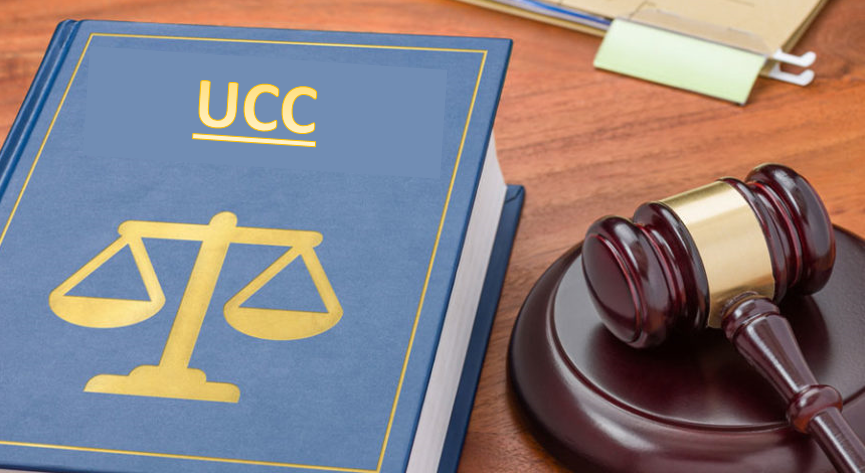Published on: 04th October 2025
Authored By: Akshat Aryan
Amity Law School
Introduction
Pharmaceutical Society of Great Britain v Boots Cash Chemists (Southern) Ltd [1953] 1 QB 401 is a landmark decision in English contract law that clarified the crucial distinction between an offer and an invitation to treat. This distinction has profound implications for retail transactions, particularly in self-service retail environments that have become ubiquitous in modern commerce.
The case arose when Boots Cash Chemists introduced a self-service system in their pharmacy at Edgware, allowing customers to select items from shelves—including medicines containing substances listed under the Pharmacy and Poisons Act 1933—and proceed to a cash counter supervised by a registered pharmacist. The Pharmaceutical Society of Great Britain challenged this arrangement, arguing it violated statutory requirements for pharmacist supervision during the sale of listed poisons.
The central legal question was: at what point does a contract of sale form in a self-service retail environment? Does the contract form when the customer selects an item from the shelf, or when the transaction is completed at the cash counter? The answer would determine whether the statutory supervision requirements were met.
Facts of the Case
Boots Cash Chemists operated a self-service store at 73 Burnt Oak Broadway, Edgware. The store implemented a system, novel for its time, whereby customers could walk through the store, select items from shelves displaying goods with marked prices, place them in baskets, and proceed to a cash counter for payment.
Within this store was a chemist section containing various medicines and ointments, some of which contained substances listed in Part I of the Poisons List under the Pharmacy and Poisons Act 1933. While these substances were present in minute quantities posing no acute danger, and the medicines could be legally sold without prescription, their sale was subject to statutory regulation. Importantly, a qualified pharmacist was stationed at the cash counter, providing supervision before any customer could leave with purchased items.
The Pharmaceutical Society of Great Britain objected to this self-service system, contending that it violated Section 18(1) of the Pharmacy and Poisons Act 1933. The Society argued that displaying goods constituted an offer, and when a customer selected an item from the shelf, this action constituted acceptance, thereby forming a contract at that moment. Since no pharmacist supervised the selection process on the shop floor, the Society alleged a statutory violation.
The trial court ruled in favor of Boots. The Pharmaceutical Society appealed to the Court of Appeal.
Issues Raised
The case presented two interrelated questions:
Question of Law
Whether the contract of sale was concluded when the customer selected products from the shelves or at the cash counter when payment was tendered and accepted.
This required the court to determine whether the self-service display constituted an offer (which could be accepted by the customer’s selection) or an invitation to treat (requiring the customer to make an offer that the retailer could accept or reject).
Question of Fact
Whether the self-service system infringed Section 18(1)(a)(iii) of the Pharmacy and Poisons Act 1933, which required sales of listed poisons to be “effected by, or under the supervision of, a registered pharmacist.”
The answer to this question depended entirely on the resolution of the legal question: if the contract formed at the shelf, there would be an infringement; if it formed at the supervised cash counter, there would be none.
Relevant Legal Framework
The Pharmacy and Poisons Act 1933
Section 18(1) provided:
“Subject to the provisions of this Part of this Act, it shall not be lawful—
(a) for a person to sell any poison included in Part I of the Poisons List, unless—
- (i) he is an authorised seller of poisons; and
- (ii) the sale is effected on premises duly registered under Part I of this Act; and
- (iii) the sale is effected by, or under the supervision of, a registered pharmacist.”
The critical phrase was “the sale is effected by, or under the supervision of, a registered pharmacist.” The case turned on when the sale was “effected”—at the moment of selection or at the cash counter.
Contract Law Principles
The case engaged fundamental principles of English contract law regarding offer and acceptance:
Offer: A definite promise to be bound on specific terms, capable of acceptance.
Invitation to Treat: An indication of willingness to negotiate or receive offers, but not itself an offer capable of acceptance.
The distinction matters because only an offer can be accepted to form a contract. An invitation to treat merely invites others to make offers, which the original party may accept or reject.
Relevant Precedents
Carlill v Carbolic Smoke Ball Co [1893] 1 QB 256
This case established that offers can be made to the world at large. The Carbolic Smoke Ball Company advertised that it would pay £100 to anyone who contracted influenza after using their product according to directions. Mrs. Carlill did so and contracted influenza. The Court of Appeal held that the advertisement constituted a genuine offer capable of acceptance through performance, not merely an invitation to treat.
The Pharmaceutical Society relied on this precedent, arguing that displaying goods with prices constituted an offer to the world that customers accepted by selecting items.
Harvey v Facey [1893] AC 552
Harvey telegraphed Facey asking whether he would sell Bumper Hall Pen and requesting the lowest price. Facey replied stating the lowest price was £900. Harvey immediately responded agreeing to purchase at that price. The Privy Council held that no contract existed because Facey’s quotation of a price was merely a response to a request for information, not an offer capable of acceptance.
This case supported Boots’ position that merely displaying goods with prices is not an offer but an invitation to treat.
Court’s Reasoning and Decision
The Court of Appeal, in a judgment delivered by Lord Justice Somervell (with whom Lord Justices Birkett and Romer agreed), ruled in favor of Boots.
The Display as Invitation to Treat
The court held that displaying goods on shelves in a self-service shop constitutes an invitation to treat, not an offer. The display invites customers to make offers to purchase, but does not commit the retailer to sell.
Lord Justice Somervell reasoned that the customer makes an offer when presenting items at the cash counter. The retailer (through the cashier) then accepts or rejects this offer. The contract forms at the moment of acceptance at the cash counter, not when items are selected from shelves.
Practical Considerations
The court’s reasoning was influenced by practical considerations:
- Retailer’s Right to Refuse: A retailer must retain the right to refuse to sell. If selecting an item from a shelf constituted acceptance of an offer, the retailer would be bound to sell to any customer who picked up an item, regardless of whether the customer could pay or the retailer had reason to refuse the sale.
- Customer’s Right to Change Mind: Customers must retain the freedom to return items to shelves before purchase without breaching a contract.
- Price Errors: If a mislabeled price constituted an offer, the retailer would be bound by the error once a customer selected the item.
Compliance with the Act
Having determined that the contract formed at the cash counter, the court found that the statutory requirement was satisfied. A registered pharmacist supervised the cash counter where sales were “effected.” The pharmacist could examine the medicines, advise customers, and refuse the sale if appropriate. Therefore, there was no breach of Section 18(1)(a)(iii) of the Pharmacy and Poisons Act 1933.
Critical Analysis
Strengths of the Decision
The court’s reasoning aligns with commercial practicality and equitable principles:
- Commercial Necessity: Modern retail, particularly self-service retail, requires flexibility. The court’s approach enables retailers to maintain control over transactions while offering convenience to customers.
- Equality of Bargaining Position: The decision prevents customers from binding retailers to contracts unilaterally (by selecting items) while retaining their own right to withdraw (by returning items to shelves). This creates more balanced contractual relations.
- Statutory Compliance: The interpretation allowed compliance with the Pharmacy and Poisons Act while permitting operational efficiency. A contrary ruling would have effectively prohibited self-service for regulated products.
Potential Criticisms
- Customer Expectations: One could argue that customers reasonably expect that displayed goods are available for purchase at marked prices. The invitation-to-treat doctrine means this expectation has no legal force—the retailer can refuse to sell.
- Consumer Protection: In an era before robust consumer protection legislation, the decision arguably favored retailers over consumers by denying customers any contractual rights until the retailer chose to accept their offer.
- Arbitrary Distinction: The line between offer and invitation to treat can seem arbitrary. Why is a display in a shop an invitation to treat, while a vending machine constitutes an offer? The answer lies in whether there is opportunity for human judgment before acceptance, but this distinction may not be immediately obvious to non-lawyers.
The Decision’s Legacy
This case established a principle that remains foundational to retail law in common law jurisdictions:
- Self-Service Retail: The decision enabled the expansion of self-service retail without regulatory impediments, contributing to the development of supermarkets and modern shopping centers.
- Online Retail: The principles established in Boots have been applied to e-commerce. Displaying goods on a website is generally treated as an invitation to treat, with the customer making an offer by placing an order, which the retailer accepts or rejects.
- Comparative Law: While this is an English case, the principles have influenced contract law interpretation in other common law jurisdictions, including India, where courts have cited Boots when analyzing offer and acceptance issues.
Conclusion
Pharmaceutical Society of Great Britain v Boots Cash Chemists (Southern) Ltd clarified a fundamental principle of contract law: displaying goods for sale, whether in traditional shops or self-service environments, constitutes an invitation to treat rather than an offer. The contract forms when the retailer accepts the customer’s offer at the point of payment.
This distinction serves important practical purposes: it preserves the retailer’s right to refuse sales, allows customers to change their minds without contractual consequences, and provides flexibility in pricing. The decision enabled the development of modern self-service retail while ensuring compliance with regulatory requirements for supervised sales.
The case remains instructive for understanding contract formation in contemporary commercial contexts, including online retail, where the same principles apply. The display of goods—whether on physical shelves or digital platforms—invites customers to make offers, which sellers may accept or decline, with contracts forming only upon acceptance of the customer’s offer to purchase.
Beyond its doctrinal significance, the case exemplifies how courts balance legal principle with commercial practicality, interpreting statutory requirements in ways that accommodate evolving business practices while preserving regulatory objectives.
Bibliography
Cases
Carlill v Carbolic Smoke Ball Co [1893] 1 QB 256 (CA)
Harvey v Facey [1893] AC 552 (PC)
Pharmaceutical Society of Great Britain v Boots Cash Chemists (Southern) Ltd [1953] 1 QB 401
Statutes
Pharmacy and Poisons Act 1933 (UK)
Journal Articles
Montrose, J.L., 1955. “The Contract of Sale in Self-Service Stores.” The American Journal of Comparative Law, 4, pp.235-239.
Unger, J., 1953. “Self-Service Shops and the Law of Contract.” The Modern Law Review, 16(3), pp.369-372.
Books
Singh, Avtar. Law of Contract and Specific Relief (11th ed., Eastern Book Company, 2013)
Bangia, R.K. Law of Contract and Specific Relief Act Part 1 (Allahabad Law Agency)
Research Papers
Salih, Rdhwan, 2020. “The Concept of Offer in Different Legal Systems.” Journal of Law, Policy and Globalization, 101, pp.146-160.
Online Resources
Law Planet, “Pharmaceutical Society of Great Britain v Boots Cash Chemists Case Summary”
iPleaders, “Differentiating Offer and Invitation to Offer Under the Indian Contract Act”



